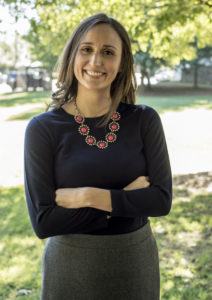Dr. Fogle is a Clinical Psychologist specializing in Women’s Issues, Mood Disorders, Trauma, & Assisted Reproduction Counseling.
Don’t go through life, Grow through life.
Get to Know Dr. Emily Fogle
Experience:
Dr. Fogle is a licensed clinical psychologist who graduated from University of Denver’s APA accredited Graduate School of Professional Psychology with her Masters and Doctoral degree. She received her Bachelors degree in psychology from University of Georgia.
Dr. Fogle has worked with adults in private practice, university counseling centers, outpatient clinics, hospitals, and intensive care units. Her areas of specialty include mood disorders, anxiety, maternal mental health, trauma, infertility, assisted reproductive counseling & consultations, and working through difficulties in relationships.
Clinical Approach:
Integrating top-tier doctoral training with experience from a variety of settings helps Dr. Fogle provide on point, client-centered treatment. Dr. Fogle’s clients appreciate her direct style, creative interventions, and use of humor in their sessions. She prides herself on making her clients feel accepted and valued for their quirks, while not shying away from the feedback that makes therapy work.

Dr. Fogle’s passion is truly working to understand the differences that each individual brings to session. She believes that cultural context influences someone’s perspective, and tailors her work to these differences. Dr. Fogle is a LGBTQ affirming psychologist.

Assisted Reproductive Counseling.
Separately from providing therapy, Dr. Fogle provides Assisted Reproduction Counseling and consultation for families. This unique service brings her in contact with individuals and families who are seeking out a guide. These families meet with Dr. Fogle to help them determine if they are psychologically ready to receive donor gametes and learn how to navigate inherent risks and ethical issues associated with receiving donor gametes.
Additionally, Dr. Fogle provides psychoeducation and counseling to help clients talk openly about this complex process. Issues typically addressed are potential conflicts associated with third-party reproductive agreements, adaptive coping practices while undergoing IVF, and future planning.